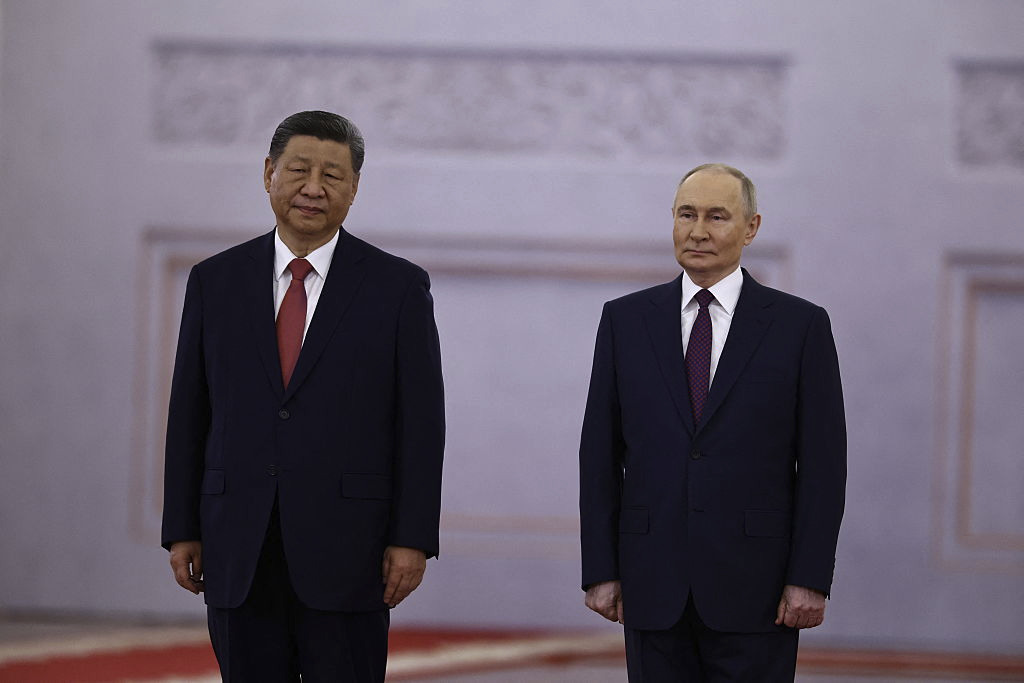
Confident of their ascendancy in terms of military and economic power, the newly cemented bloc under China's leadership has also started promoting what Chinese President Xi Jinping has dubbed "new governance" as a model not only for the "global south" but for the world as a whole.
In other words, the Middle Empire, presumably backed by Russia and a number of Eurasian nations, hopes to extend military and economic competition with the West to the political domain, something it had studiously avoided for decades when the Western democratic model appeared to be in the ascendancy.
For over three decades, the Freedom House indicator claimed a steady rise in the number of nations moving towards some form of democratization. In recent years, however, that indicator and other studies have shown the curve to be moving in the opposite direction.
The idea of a rival model started with Russian President Vladimir Putin's attempt to annex Ukraine after successfully annexing parts of Georgia. Aleksandr Dugin, Putin's ideological guru, argued that stopping the "expansion" of the North Atlantic Treaty Organization (NATO) did not mean a break with basic democratic tenets. Russia and other powers such as China could offer a "disciplined" or "illiberal" version of democracy to the West's chaotic system, in which power is used by pressure groups and lobbies in the interest of certain constituencies.
At first glance, "illiberal democracy" as a model seemed to have a strong starting point.
Of the 15 nations that became independent entities after the fall of the USSR, only three -- the Baltic republics -- have moved to build Western-style capitalist democracies, becoming full members of the European Union and NATO. But that was no surprise. All three, annexed by Soviet dictator Joseph Stalin, had never been fully sovietized.
Dugin has no problem with Belarus, which has remained a Soviet-style state closely linked to Moscow.
Despite occasional anti-Moscow musings by the ruling elites, the Soviet system also remains the model in Kazakhstan, Kyrgyzstan, Uzbekistan, Tajikistan and Turkmenistan.
Georgia tried to "Westernize" but had to backpedal in 2008, after Putin invaded and snatched away South Ossetia and Abkhazia, and is now back in Russia's influence zone.
Azerbaijan, gripped by an identity crisis, has tried to keep the Soviet system while forging alliances with Turkey and Israel, plus "special relations" with the US as a varnish.
Armenia tried to distance itself from the Soviet model but had to backpedal when forced to call in Russian troops to protect it against the Turkish-Azerbaijani threat, and is now trying to backpedal again by inviting the US to establish a high profile through the Trump Pathway to Peace and Prosperity.
China's intervention in the undeclared competition for ideological ascendancy may reduce Russia's role to that of a bridesmaid. However, China itself may see its ambition to become an alternative to the Western model of governance thwarted by India, which, with Narendra Modi at the helm, is moving towards becoming an illiberal democracy.
Xi and Putin's hope of promoting their brand of governance faces an even more important challenge from Chinese and Russian people who, by all accounts, still find the Western way of life far more attractive. More than 50 million Chinese travel to Western Europe and North America each year but pointedly shun Russia and the Eurasian 'stans not to mention North Korea. As for Russians, few of them show interest in discovering the marvels of the Middle Empire.
Some Western analysts warn that even a semi-defeat in Ukraine could drive Russia into the arms of Communist China.
I doubt that such a thing would happen. In the Russian historic-cultural mindset, China remains the number-one threat. The fact that its economy leaves Russia in no position to seek more-or-less balanced relations with China must also be considered.
Russo-Chinese relationship could only assume a neo-colonial identity, with Russia as an exporter of raw materials, including oil, gas and minerals, and an importer of capital, manufactured goods and even settlers. Right now, an estimated 3.3 million Chinese settlers are developing new farming and light industrial projects, mostly in Siberia and the Sino-Russian borderlands.
The biggest barrier to the "new governance" model marketed by Xi and Putin is the rapid transformation experienced by almost all nations in the so-called "global south," with the amazingly rapid expansion of a middle class produced by the adoption of the free market system.
Today in Russia, China and much of the "global south," we witness patterns of material and cultural consumption developed by Western nations since the 18th century.
Capitalism was bound to lead to democracy in the old Westphalian nation-states, which lived under models of governance no less authoritarian or illiberal than what we have in China and Russia today.
Two decades ago, the emerging middle classes in China and Russia tried to imitate the superficial aspects of the Western model.
Chinese tourists still line up in the Champs-Élysées from 7 a.m. to "plunder" Parisian luxury shops. But the other day I couldn't believe my eyes when I saw half a dozen Chinese tourists piling shopping baskets with musical records, DVDs and books.
"It is for friends back home," a slender Chinese maiden explained half apologetically.
Amir Taheri was the executive editor-in-chief of the daily Kayhan in Iran from 1972 to 1979. He has worked at or written for innumerable publications, published eleven books, and has been a columnist for Asharq Al-Awsat since 1987.
Gatestone Institute would like to thank the author for his kind permission to reprint this article in slightly different form from Asharq Al-Awsat. He graciously serves as Chairman of Gatestone Europe.


